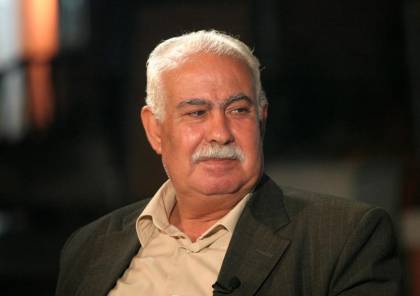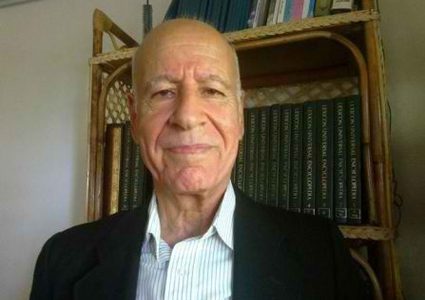When Will Arabs Act to Defend Their Dignity?
Al-Khamisa News Network - Gaza

Author: Talal Awkal
Only a few hours separated Benjamin Netanyahu’s public celebration of what his army and intelligence services had precisely achieved, and the reports announcing the failure to assassinate the Hamas negotiating delegation in the Qatari capital.
Twelve missiles were fired by Israeli warplanes at the site where the negotiating delegation was meeting; they failed to hit their target and struck a number of aides, including the son of Dr. Khalil al-Hayya.
The brief euphoria that swept the political and security echelons — praised even by the traditional “opposition” — gave way to deep confusion, to which Netanyahu responded by threatening to continue carrying out more assassinations.
“No one is immune,” he justified his violation of the sovereignty of an Arab state that is neither at war nor even hostile to Israel, a state that has long played the role of mediator during the aggressive war and before it, with the consent and support of Washington, which has always regarded it as one of its closest allies.
By lifting that immunity, Netanyahu implied that, having targeted Qatari sovereignty, the move extends to all Arab capitals, and forms part of a doctrine to redraw the image and reality of the Middle East on the path to achieving the occupier state’s strategic objectives — ambitions aimed at controlling Arab territories beyond the “ring states” and including them.
The strike that targeted the negotiating delegation was in fact aimed at the negotiations and the political and diplomatic track, and confirms that Israel is pressing ahead with its criminal and brutal wars across the region.
It is an attack on the Arab mediators, Egypt and Qatar, and a blatant, brazen violation of Arab dignity and sovereignty. It is, in one sense or another, an attack on U.S. President Donald Trump, the author of the latest initiative that everyone was surprised to see the assassination attempt target, since the delegation was discussing how to respond to it.
There is nothing strange about this: U.S. presidents have grown accustomed to receiving insults from Netanyahu and ministers in his repressive government, yet they swallow those insults — except once, when President Barack Obama allowed a U.N. Security Council resolution condemning settlements as a violation of international law to pass.
If U.S. presidents swallow the insults because of the power of Zionist pressure groups and a strategic stance that backs the occupying state with all its might, the question is why Arab leaders resort to silence in the face of the insults and dangers they are exposed to?
Some want to believe Trump when he says he did not give the occupier the green light to do what it did, and that he does not see any benefit for Israel or his country in what happened; his vice president even said there was something “positive” in the incident, meaning the removal of a bad leadership — referring to the Hamas negotiating delegation.
Arab leaders resort to statements of condemnation and denunciation, describing Israel’s actions as violations of international law and diplomatic norms, but they do not dare to go beyond rhetorical language, even though they have sufficient cards to deter the occupier — if not to protect their regimes from an imminent and looming danger, then at least to preserve their internal stability.
Madness remains the guiding principle of the occupation’s actual policy, without learning the lessons of history. History shows that the occupier state adopted a policy of assassinations from the early 1970s, but it did not stop the Palestinian struggle.
It assassinated many cadres and leaders of the Palestine Liberation Organization in allied European countries, and it also assassinated the entire founding leadership of Fatah, including its leader, the late Abu Ammar, but the movement did not stop.
It also assassinated leaderships of the Islamic resistance movements from Hamas to Islamic Jihad, but it did not succeed in stopping the Palestinian struggle.
The same is true of other factions of the PLO: the occupier fails to kill the idea, and each time new leaders emerge who are no less committed to national rights than their predecessors.
In the same context, the occupier state assassinated first- and second-tier leaders and a large number of cadres of Lebanon’s Hezbollah, and it also assassinated the prime minister of the Ansar Allah (Houthi) government in Yemen and others — did any of this succeed in imposing surrender on anyone?
The world, especially the West, may not sympathize with those targeted for assassination, but it cannot ignore the legal and moral dimensions of the Israeli act, which is facing an international “tsunami” after the failed assassination attempt.
Netanyahu has shown that his repressive government displays not even the minimum concern for the hostages and for the mood of the Israeli street, and that he continues his delusions of achieving illusory goals that have failed to materialize after two years.
The people of Gaza go out under fire to declare that they will remain on their land, that they reject the policy of displacement and uprooting, and most Gaza residents insist on staying in their homes, refusing Israeli warnings to evacuate.
The question is: will the failed operation halt the negotiations? I believe the resistance will continue to show readiness to negotiate, but the assassination attempt gives it incentive to cling to its conditions for ending the genocidal war, for the withdrawal of the occupying army, and for allowing the flow of aid.
In light of what happened, it is expected that the role of the two Arab mediators, Egypt and Qatar, will decline in favor of the continued American “mediation,” which, if it wants to succeed, must abandon its bias toward the occupying state and stop the role-swapping and deceit.



